CRP
How to submit an article:
- Registered users can submit any published journal article that has a unique DOI (Digital Object Identifier) name or link to Research Hub.
- For example, you can paste the full DOI link:
https://doi.org/10.1109/5.771073or just the DOI name:10.1109/5.771073into the field above and click submit. - The person who is first to submit a valid article to Research Hub will forever be credited for it, and every article submission earns you +6 Research Points.
Also known as: C-Reactive Protein
Related Topics
Published research studies are articles that present the findings of original research that has undergone a peer-review process and has been made publicly available in scholarly journals, books or other media.
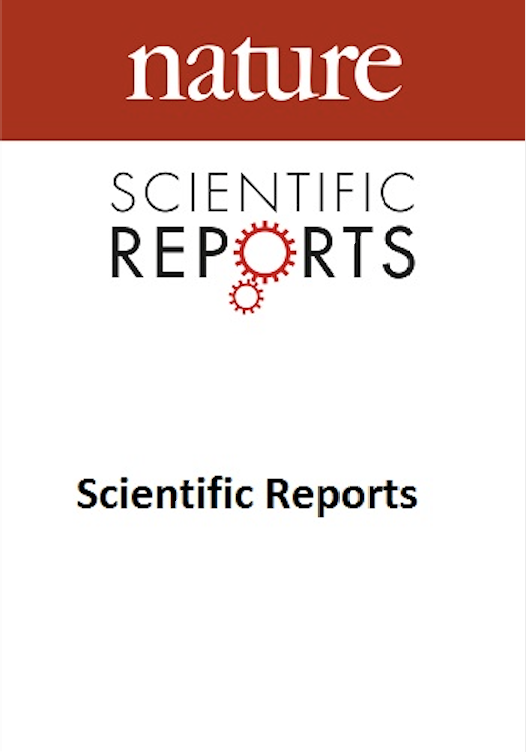
Effectiveness of a novel diet in attenuation of clinical activity of disease in patients with ulcerative colitis: a randomized, clinical trial
2024 Jun 14 Scientific Reports Narimani B, Sadeghi A, Daryani NE, Shahrokh S, Nilghaz M, Ghods M, et al.
Randomised Controlled Trial Low FODMAP Ulcerative ColitisA combined Mediterranean, low-FODMAP diet along with partial enteral nutrition has shown promise in reducing ulcerative colitis activity and improving patients' quality of life.

Adjuvant pomegranate juice intake improves the inflammatory status of hospitalized COVID-19 patients: A randomized and placebo-controlled trial
2023 Aug Complementary Therapies in Medicine Yousefi M, Sadriirani M, Mahmoodi S, Samimi B, Pourmahmoudi A, Hosseinikia M, et al.
Randomised Controlled Trial Inflammation Common Cold, Flu & Viral Infections COVID-19 CRPPomegranate juice consumption appears to somewhat enhance inflammatory status and complete blood count in hospitalized COVID-19 patients.

A systematic review and meta-analysis of almond effect on C-reactive protein and interleukin-6 in adults
2023 Mar Complementary Therapies in Medicine Hariri M, Amirkalali B, Baradaran HR, Gholami A
Systematic Review Meta-Analysis CRP Almond IL-6Almond consumption can significantly reduce the serum concentration of the inflammatory mediator, Interleukin-6, in adults but no significant effect is found on C-reactive protein.
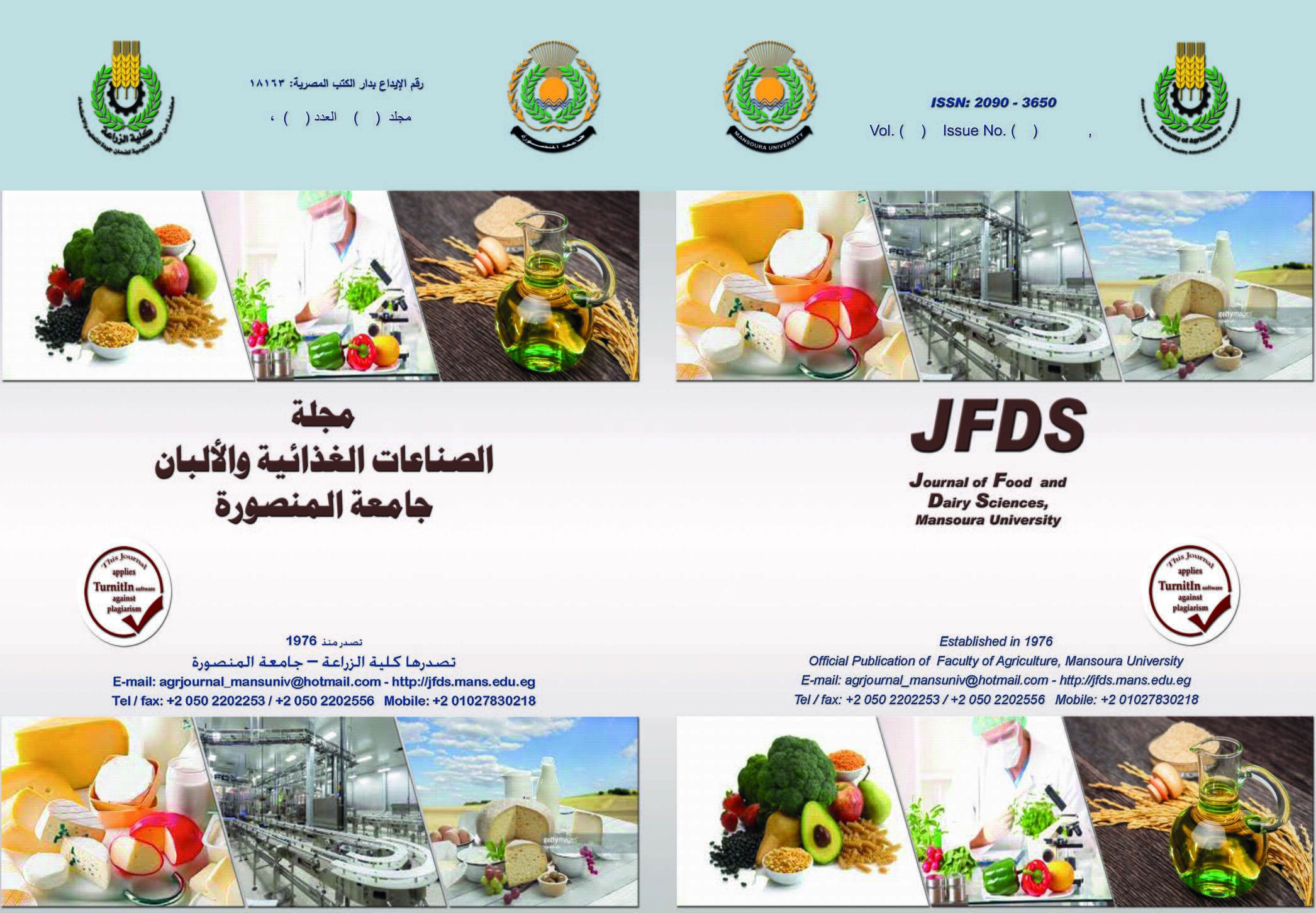
Comparative Study Between Virgin Coconut Oil and Omeprazole Drug on Ulcerative Colitis in Experimental Rats
2021 Feb 01 Journal of Food and Dairy Sciences Abd El Ghany M, Ramadan AH, Nagib R, EL-Azaly F
In rats with acetic acid-induced ulcerative colitis, the administration of virgin coconut oil demonstrated a significant improvement in final weight, weight gain, feed efficiency ratio, stomach organ weight, antioxidant enzymes (CAT, SOD, GSH, GSR, GPx, GST), and a significant reduction in oxidative stress markers (MDA, H2O2), inflammatory markers (CRP, IL-6, PG2), compared to the control group. These findings suggest that virgin coconut oil has a potential curative effect on acetic acid-induced ulcerative colitis in rats, emphasizing its potential as a therapeutic agent in the management of ulcerative colitis.
Experimental Study Animal Study Esomeprazole Coconut Oil Ulcerative Colitis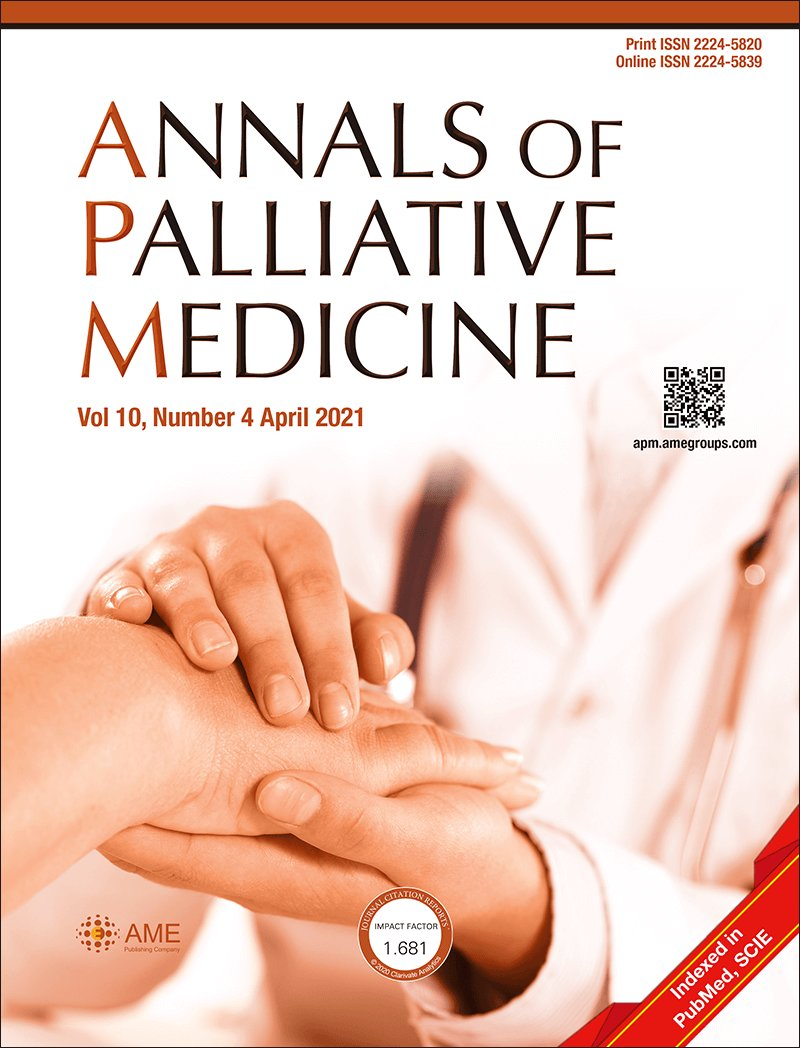
Vitamin D improves levels of hormonal, oxidative stress and inflammatory parameters in polycystic ovary syndrome: a meta-analysis study
2021 Jan Annals of Palliative Medicine Zhao JF, Li BX, Zhang Q
Vitamin D supplementation in patients with PCOS resulted in an improvement in the levels of TT, hs-CRP, TAC, and MDA, but did not affect FT, DHEA-S, SHBG, FAI, NO, and GSH levels. Vitamin D co-supplementation, low-dose vitamin D supplementation (≤1,000 IU/day), and daily supplementation frequency appeared to be more conducive to improving hormones, inflammation, and oxidative stress in PCOS patients.
Meta-Analysis Vitamin DResearch insights are moderated by the Research Hub team and offer an at-a-glance overview of interesting research findings.

2024 Scientific Reports
A combined Mediterranean, low-FODMAP diet along with partial enteral nutrition has shown promise in reducing ulcerative colitis activity and improving patients' quality of life.
Randomised Controlled Trial Low FODMAP Ulcerative Colitis
Effectiveness of a novel diet in attenuation of clinical activity of disease in patients with ulcerative colitis: a randomized, clinical trial
Narimani B, Sadeghi A, Daryani NE, Shahrokh S, Nilghaz M, Ghods M, et al.

2023 Complementary Therapies in Medicine
Pomegranate juice consumption appears to somewhat enhance inflammatory status and complete blood count in hospitalized COVID-19 patients.
Randomised Controlled Trial Common Cold, Flu & Viral Infections COVID-19 Inflammation
Adjuvant pomegranate juice intake improves the inflammatory status of hospitalized COVID-19 patients: A randomized and placebo-controlled trial
Yousefi M, Sadriirani M, Mahmoodi S, Samimi B, Pourmahmoudi A, Hosseinikia M, et al.

2023 Complementary Therapies in Medicine
Almond consumption can significantly reduce the serum concentration of the inflammatory mediator, Interleukin-6, in adults but no significant effect is found on C-reactive protein.
Systematic Review Almond IL-6
A systematic review and meta-analysis of almond effect on C-reactive protein and interleukin-6 in adults
Hariri M, Amirkalali B, Baradaran HR, Gholami A
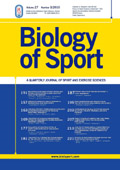
2021 Biology of Sport
Walnut consumption coupled with concurrent training improves lipid profile, steroid hormone levels, and systematic inflammation in elderly men.
Randomised Controlled Trial Cholesterol Cortisol Inflammation Testosterone Walnut
Moderate walnut consumption improved lipid profile, steroid hormones and inflammation in trained elderly men: a pilot study with a randomized controlled trial
Kamoun A, Hammouda O, Turki M, Maaloul R, Chtourou M, Bouaziz M, et al.
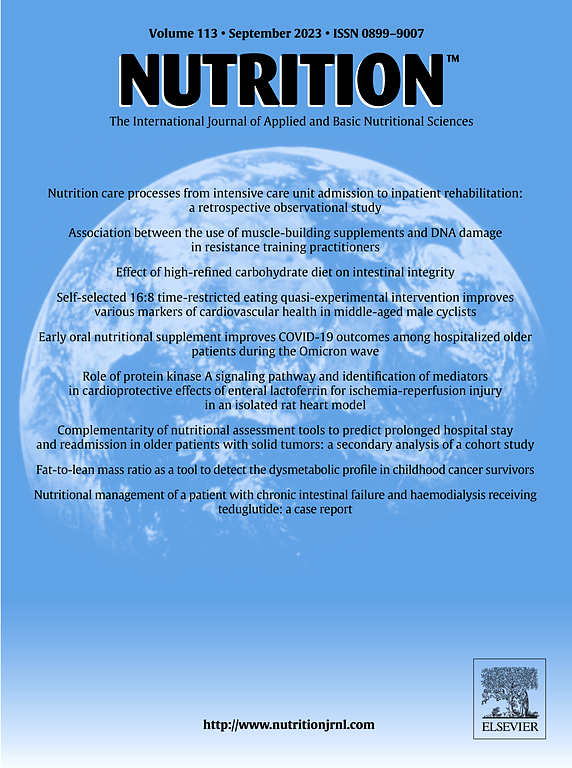
2020 Nutrition
Intermittent fasting and energy-restricted diets may decrease inflammatory markers, especially in overweight and obese individuals, but have no impact on the levels of certain proteins involved in inflammation.
Meta-Analysis Inflammation Intermittent Fasting
Effects of intermittent fasting diets on plasma concentrations of inflammatory biomarkers: A systematic review and meta-analysis of randomized controlled trials
Wang X, Yang Q, Liao Q, Li M, Zhang P, Santos HO, et al.
Review Articles
Review articles summarise and critically evaluate the current state of research on a specific topic or field by synthesising multiple primary research studies.

A systematic review and meta-analysis of almond effect on C-reactive protein and interleukin-6 in adults
2023 Mar Complementary Therapies in Medicine Hariri M, Amirkalali B, Baradaran HR, Gholami A
Systematic Review Meta-Analysis CRP Almond IL-6Almond consumption can significantly reduce the serum concentration of the inflammatory mediator, Interleukin-6, in adults but no significant effect is found on C-reactive protein.
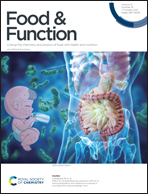
The effects of low-ratio n-6/n-3 PUFA on biomarkers of inflammation: a systematic review and meta-analysis
2021 Jan Food & Function Wei Y, Meng Y, Li N, Wang Q, Chen L
Low-ratio n-6/n-3 PUFA supplementation significantly decreases the concentration of serum TNF-α and IL-6, but does not have a significant effect on CRP concentration.
Systematic Review Meta-Analysis Inflammation
Effects of intermittent fasting diets on plasma concentrations of inflammatory biomarkers: A systematic review and meta-analysis of randomized controlled trials
2020 Nov Nutrition Wang X, Yang Q, Liao Q, Li M, Zhang P, Santos HO, et al.
Meta-Analysis Systematic Review Inflammation Intermittent FastingIntermittent fasting and energy-restricted diets may decrease inflammatory markers, especially in overweight and obese individuals, but have no impact on the levels of certain proteins involved in inflammation.

Coffee Consumption and C-Reactive Protein Levels: A Systematic Review and Meta-Analysis
2020 May 08 Nutrients Moua ED, Hu C, Day N, Hord NG, Takata Y
Systematic Review Meta-Analysis Coffee CRPCoffee intake may have a variable effect on inflammation markers, with different responses noted between men and women and across various geographical regions.
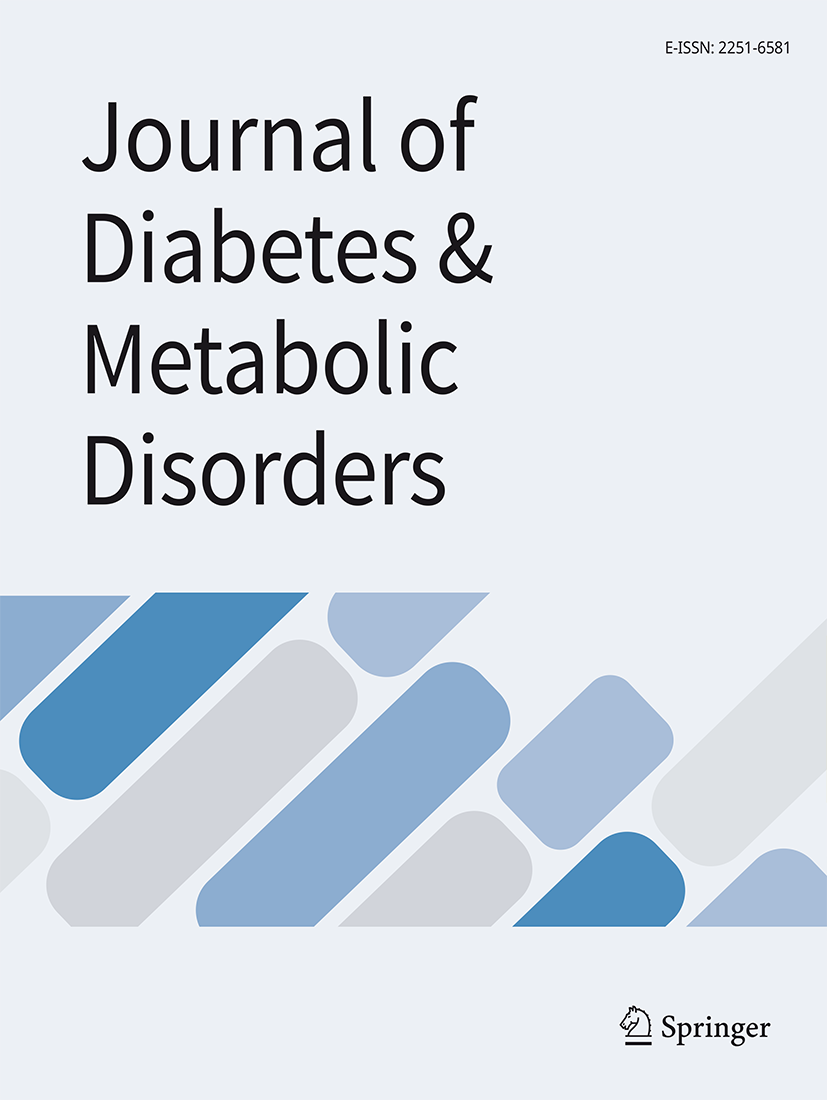
The effect of green coffee extract supplementation on cardio metabolic risk factors: a systematic review and meta-analysis of randomized controlled trials
2020 May 15 Journal of Diabetes & Metabolic Disorders Morvaridi M, Rayyani E, Jaafari M, Khiabani A, Rahimlou M
Systematic Review Meta-Analysis Coffee HDL-C Blood SugarGreen coffee supplementation significantly decreases fasting blood sugar, insulin, and triglycerides while boosting high-density lipoprotein levels.
Clinical Trials
Clinical trials are research studies that involve people and are conducted to evaluate the safety and efficacy of new treatments or interventions, such as drugs, medical devices, or behavioural therapies.

Effectiveness of a novel diet in attenuation of clinical activity of disease in patients with ulcerative colitis: a randomized, clinical trial
2024 Jun 14 Scientific Reports Narimani B, Sadeghi A, Daryani NE, Shahrokh S, Nilghaz M, Ghods M, et al.
Randomised Controlled Trial Low FODMAP Ulcerative ColitisA combined Mediterranean, low-FODMAP diet along with partial enteral nutrition has shown promise in reducing ulcerative colitis activity and improving patients' quality of life.

Adjuvant pomegranate juice intake improves the inflammatory status of hospitalized COVID-19 patients: A randomized and placebo-controlled trial
2023 Aug Complementary Therapies in Medicine Yousefi M, Sadriirani M, Mahmoodi S, Samimi B, Pourmahmoudi A, Hosseinikia M, et al.
Randomised Controlled Trial Inflammation Common Cold, Flu & Viral Infections COVID-19 CRPPomegranate juice consumption appears to somewhat enhance inflammatory status and complete blood count in hospitalized COVID-19 patients.

Moderate walnut consumption improved lipid profile, steroid hormones and inflammation in trained elderly men: a pilot study with a randomized controlled trial
2021 Jan Biology of Sport Kamoun A, Hammouda O, Turki M, Maaloul R, Chtourou M, Bouaziz M, et al.
Randomised Controlled Trial Walnut Inflammation CRP Cholesterol Cortisol TestosteroneWalnut consumption coupled with concurrent training improves lipid profile, steroid hormone levels, and systematic inflammation in elderly men.
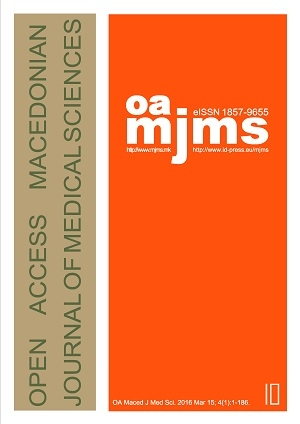
Assessment of Allergic Rhinitis among Children after Low-Level Laser Therapy
2019 Jul 07 Open Access Macedonian Journal of Medical Sciences Moustafa Y, El Nady HG, Saber MM, Dabbous OA, Kamel TB, Abel-Wahhab KG, et al.
Laser acupuncture is a reliable, painless and non-invasive successful technique, which may be used as a complementary treatment for pediatric allergic rhinitis.
Randomised Controlled Trial Hay Fever Low-Level Laser Therapy Children's Health Laser Acupuncture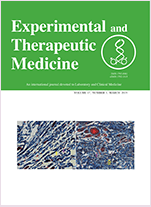
Effect of pomegranate juice consumption on biochemical parameters and complete blood count
2017 Jun 27 Experimental and Therapeutic Medicine Manthou E, Georgakouli K, Deli CK, Sotiropoulos A, Fatouros IG, Kouretas D, et al.
Randomised Controlled Trial Haemoglobin Red Blood Cell Count Iron Deficiency PomegranatePomegranate juice consumption over a short period promotes red blood cell production without significantly changing metabolic health and inflammation markers in healthy individuals.
Study Protocols
Published study protocols are detailed plans that outline the objectives, methodology, statistical analyses, and organisation of a research study that have been made publicly available for others to review and use as a reference.
Presentation Slides

Randomised Controlled Trial
A combined Mediterranean, low-FODMAP diet along with partial enteral nutrition has shown promise in reducing ulcerative colitis activity and improving patients' quality of life.
Narimani B, Sadeghi A, Daryani NE, Shahrokh S, Nilghaz M, Ghods M, Shafiee M, Shahparvari MR, Hekmatdoost A

Randomised Controlled Trial
Pomegranate juice consumption appears to somewhat enhance inflammatory status and complete blood count in hospitalized COVID-19 patients.
Yousefi M, Sadriirani M, Mahmoodi S, Samimi B, Pourmahmoudi A, Hosseinikia M, Sadeghi O, Roustaei N, Saeedinezhad Z, Espín JC, Ansari S, Panahande SB

Systematic Review
Almond consumption can significantly reduce the serum concentration of the inflammatory mediator, Interleukin-6, in adults but no significant effect is found on C-reactive protein.
Hariri M, Amirkalali B, Baradaran HR, Gholami A

Randomised Controlled Trial
Walnut consumption coupled with concurrent training improves lipid profile, steroid hormone levels, and systematic inflammation in elderly men.
Kamoun A, Hammouda O, Turki M, Maaloul R, Chtourou M, Bouaziz M, Driss T, Souissi N, Chamari K, Ayadi F

Meta-Analysis
Intermittent fasting and energy-restricted diets may decrease inflammatory markers, especially in overweight and obese individuals, but have no impact on the levels of certain proteins involved in inflammation.
Wang X, Yang Q, Liao Q, Li M, Zhang P, Santos HO, Kord-Varkaneh H, Abshirini M

Systematic Review
Green coffee supplementation significantly decreases fasting blood sugar, insulin, and triglycerides while boosting high-density lipoprotein levels.
Morvaridi M, Rayyani E, Jaafari M, Khiabani A, Rahimlou M

Systematic Review
Coffee intake may have a variable effect on inflammation markers, with different responses noted between men and women and across various geographical regions.
Moua ED, Hu C, Day N, Hord NG, Takata Y
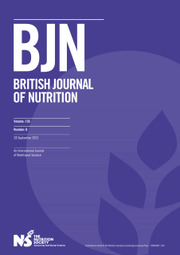
Meta-Analysis
Strawberry interventions significantly reduced CRP levels and may improve total cholesterol and LDL-cholesterol in individuals with high baseline levels.
Gao Q, Qin LQ, Arafa A, Eshak ES, Dong JY

Meta-Analysis
Pomegranate juice supplementation notably diminishes inflammation and vascular dysfunction markers in adults, offering potential cardiovascular health benefits.
Wang P, Zhang Q, Hou H, Liu Z, Wang L, Rasekhmagham R, Kord-Varkaneh H, Santos HO, Yao G

Systematic Review
Regular dietary intake of olive oil reduces the levels of certain inflammation markers, making it a beneficial alternative dietary fat, especially for managing IL-6.
Fernandes J, Fialho M, Santos R, Peixoto-Plácido C, Madeira T, Sousa-Santos N, Virgolino A, Santos O, Vaz Carneiro A

Meta-Analysis
Traditional Chinese Medicine (TCM), when used alongside Western Medicine (WM), seems to improve treatment outcomes for Crohn's disease.
Wang Y, Li M, Zha AS

Experimental Study
Coffee consumption, particularly caffeinated coffee, predominantly exhibits anti-inflammatory effects, contrasting with caffeine's complex impact on inflammation.
Paiva CLRS, Beserra BTS, Reis CEG, Dorea JG, Da Costa THM, Amato AA

Randomised Controlled Trial
Pomegranate juice consumption over a short period promotes red blood cell production without significantly changing metabolic health and inflammation markers in healthy individuals.
Manthou E, Georgakouli K, Deli CK, Sotiropoulos A, Fatouros IG, Kouretas D, Haroutounian S, Matthaiou C, Koutedakis Y, Jamurtas AZ
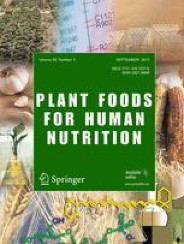
Randomised Controlled Trial
Pomegranate juice intake can reduce systolic and diastolic blood pressure and inflammation markers, but may increase triglyceride and very low-density lipoprotein cholesterol levels.
Moazzen H, Alizadeh M
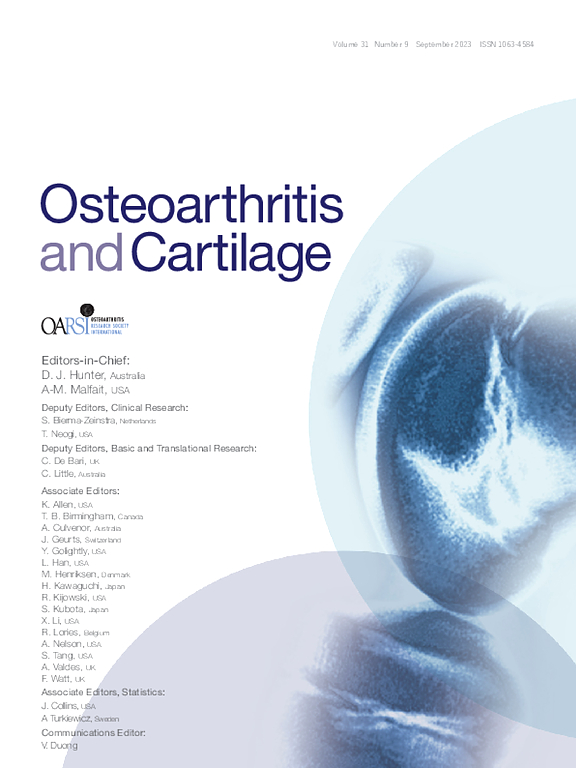
Randomised Controlled Trial
Tart cherry juice potentially helps alleviate symptoms of mild to moderate knee osteoarthritis and decreases the levels of high sensitivity C-reactive protein.
Schumacher HR, Pullman-Mooar S, Gupta SR, Dinnella JE, Kim R, McHugh MP

Randomised Controlled Trial
Tart cherry juice shows promise in easing knee osteoarthritis symptoms.
Schumacher HR, Pullman-Mooar S, Gupta SR, Dinnella JE, Kim R, McHugh MP
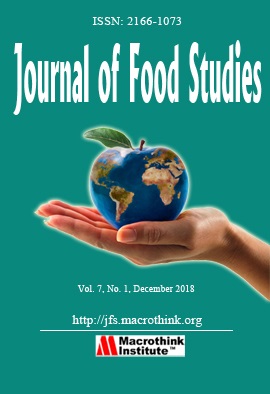
Randomised Controlled Trial
Tart cherry juice may lessen inflammation, thus reducing pain in women with osteoarthritis, according to changes noted in specific inflammatory serum biomarkers.
Kuehl KS, Elliot DL, Sleigh AE, Smith JL
Executive Summary
Write an executive summary in the form of a blog article on the topic of "Research into Chinese medicine treatment for CRP" summarising the research below and using language that can be easily understood by patients and avoiding medical jargon using a professional and caring tone of voice.
Write an executive summary in the form of a blog article on the topic of "Researched Chinese medicine treatments for CRP" summarising the research below in an objective and easy to understand way, and using language that can be easily understood by patients. Group the article into Chinese medicine treatments first, followed by nutrition and other treatments. Avoid using medical jargon and use a professional and caring tone of voice.
Write me a concise but easy to understand executive summary on the topic of "Chinese medicine treatments for CRP" based on the following research that I will give you. Your summary should be 2 paragraphs long in Australian English spelling and include references to the studies.
A Randomised Controlled Trial published in 2024 in the journal Scientific Reports found that A combined Mediterranean, low-FODMAP diet along with partial enteral nutrition has shown promise in reducing ulcerative colitis activity and improving patients' quality of life. In the study, fifty patients with active, mild to moderate ulcerative colitis were randomly allotted one of two diets: a combined Mediterranean, low-FODMAP diet supplemented with partial enteral nutrition, or a standard diet. These diets were implemented for a duration of 6 weeks. Before and after the intervention, various indicators of the patients' conditions were measured. These variables included a disease activity index, the patients' quality of life, and concentrations of various inflammatory and oxidative stress factors in the blood. All of these were measured using tested and trustworthy questionnaires, in conjunction with blood sampling. The combined diet was found to result in significantly decreased disease activity index values, compared to both the control diet and the baseline data. Simultaneously, patients on the combined diet reported greater enhancements in their quality of life, compared to both the control group and the initial data. Lastly, the serum level of a protein called "high sensitive C-reactive protein," known to be a general marker of inflammation within the body, was found to be reduced in the combined diet group. However, changes in the serum total antioxidant capacity were found to be statistically insignificant across both groups.
A Randomised Controlled Trial published in 2023 in the journal Complementary Therapies in Medicine found that Pomegranate juice consumption appears to somewhat enhance inflammatory status and complete blood count in hospitalized COVID-19 patients. The study was a randomized, double-blinded placebo-controlled trial involving 48 patients and had two parallel arms. As part of their standard hospital care, patients were either given 500 mL of whole pomegranate juice daily or a placebo for a period of 14 days. The researchers focused on measuring inflammatory indicators and complete blood counts both at the start of the study and at the end of the 14-day intervention period. Following the 14-day intervention, there was a distinguishable decrease in primary outcomes including inflammatory markers such as C reactive protein, interleukin-6, and erythrocyte sedimentation rate in the group that consumed pomegranate juice as compared to the readings before the intervention. In addition, considerable changes were also observed in secondary outcomes such as neutrophils, lymphocytes, platelets, platelets-to-lymphocyte and neutrophils-to-lymphocyte ratios in the pomegranate juice group compared to the parameters before the intervention. Finally, the mean changes in levels of interleukin-6, white blood cells, neutrophils, lymphocyte, platelets, platelets-to-lymphocyte ratio, blood oxygen saturation and MCV were significantly different between the two groups by the end of intervention, while no significant difference was noted in other blood indices.
A Systematic Review published in 2023 in the journal Complementary Therapies in Medicine found that Almond consumption can significantly reduce the serum concentration of the inflammatory mediator, Interleukin-6, in adults but no significant effect is found on C-reactive protein. The methodology of this study involved running an electronic search for English-language studies across several databases such as Web of Science, PubMed, SCOPUS, ClinicalTrials.gov, and Cochrane library without any time restrictions. The effect sizes on serum concentration of C-reactive protein (CRP) and Interleukin-6 (IL-6) were calculated based on the mean changes of both intervention and control groups. Assessment of the overall effects and their heterogeneity was done using the DerSimonian and Laird random-effects model. To examine the statistical heterogeneity, Cochran's Q test and I-squared statistic were utilized. With respect to the results, among the eleven studies involved, it was observed that almond consumption did not significantly affect serum CRP level. However, a significant decrease in serum IL-6 level was reported with almond consumption. Thus, reflecting the beneficial effects of almonds with regard to reducing the serum concentration of IL-6. The results derived for serum CRP were not substantial enough to be considered significant.
A Randomised Controlled Trial published in 2021 in the journal Biology of Sport found that Walnut consumption coupled with concurrent training improves lipid profile, steroid hormone levels, and systematic inflammation in elderly men. The study created two matched groups of fit elderly men and placed one on a diet inclusive of walnuts (15g/day for six weeks) alongside their concurrent (resistance and endurance) training. The other group did the concurrent training without the walnut-supplemented diet. The study then took fasting blood samples from the participants 48 hours before and after the intervention for biochemical assessments. The group consuming walnuts saw a significant improvement in their lipid profiles with increased high-density lipoprotein levels and decreased total cholesterol, low-density lipoprotein and triglyceride levels. The walnut-eating participants also saw an increase in testosterone levels after the training, which was significantly higher than the group not consuming walnuts. Additionally, the walnut-consuming group experienced lowered cortisol levels and decreased C-reactive protein compared to the group not consuming walnuts. It is plausible the results could be attributed to the presence of polyunsaturated fatty acids in walnuts.
A Meta-Analysis published in 2020 in the journal Nutrition found that Intermittent fasting and energy-restricted diets may decrease inflammatory markers, especially in overweight and obese individuals, but have no impact on the levels of certain proteins involved in inflammation. The research involved the systematic search of online medical databases such as Web of Sciences, PubMed, SCOPUS, and Google Scholar until June 2019. The aim was to evaluate the effects of Intermittent fasting (IF) and energy-restricted diets (ERDs) on plasma concentrations of inflammatory biomarker. The study included randomised control trials and the effect sizes were evaluated using a weighted mean difference from the random-effects model. Eighteen eligible trials were included in this meta-analysis. The results showed a significant reduction in C-reactive protein concentrations, an inflammatory marker, with IF regimens and ERDs, and this reduction was even more profound in overweight and obese individuals. The treatment also showed better results with a longer duration of intervention of eight weeks or more. However, neither dietary model decreased the concentrations of tumor necrosis factor-α or interleukin-6, which are proteins involved in the inflammation process.
A Systematic Review published in 2020 in the journal Journal of Diabetes & Metabolic Disorders found that Green coffee supplementation significantly decreases fasting blood sugar, insulin, and triglycerides while boosting high-density lipoprotein levels. In methodology, a comprehensive literature review was carried out across PubMed, Embase, Scopus, and the Web of Science databases until October 2019. The objective was to scrutinize all randomized controlled trials of the impact of green coffee supplementation on various cardio metabolic risk factors in adults. These risk factors included fasting blood sugar, insulin, triglycerides, high and low-density lipoproteins and C-reactive protein. Data was then extracted from the relevant studies for analysis. From the selected 27 studies for final analysis, the pooled results depicted that green coffee supplementation had a significant effect in reducing fasting blood sugar, insulin, and triglyceride levels. In addition, it was found to increase the levels of high-density lipoprotein. Conversely, it was determined that the supplementation did not lead to any notable changes in the Homeostatic Model Assessment for Insulin Resistance, low-density lipoprotein and C-reactive protein levels.
A Systematic Review published in 2020 in the journal Nutrients found that Coffee intake may have a variable effect on inflammation markers, with different responses noted between men and women and across various geographical regions. The researchers carried out a systematic review and dose-response meta-analysis on the relationship between coffee intake and C-reactive protein (CRP) levels, an inflammation biomarker. They studied eleven previous studies involving a total of 61,047 participants from three different continents. These studies were chosen using the PubMed database. The selected studies had different findings: some showed a negative relationship between coffee and CRP levels, others showed a positive relationship while some showed no significant associations. The researchers analyzed the data from these studies using mixed-effects meta-regression models, with the volume of coffee consumed as the metric. Regarding the discussion of results, there revealed to be considerable variation between the individual studies included in the meta-analysis. In three of the largest studies, it was found that the relationship between coffee consumption and CRP levels appeared to be different depending on the gender of the participant and their location. Women from Europe and the United States, as well as Japanese men, showed a decrease in CRP levels with increased coffee consumption. However, European men showed an increased inflammation marker. When all studies were considered together, no significant relationship between coffee consumption and CRP levels was found among all participants or when the data was stratified by gender or geographical location, showing the contradictory nature of the results noted in individual studies.
A Meta-Analysis published in 2020 in the journal British Journal of Nutrition found that Strawberry interventions significantly reduced CRP levels and may improve total cholesterol and LDL-cholesterol in individuals with high baseline levels. We included eleven RCT in this meta-analysis (six for blood pressure, seven for lipid profile, seven for fasting blood glucose and six for C-reactive protein (CRP)). Overall, the strawberry interventions significantly reduced CRP levels by 0·63 (95 % CI −1·04, −0·22) mg/l but did not affect blood pressure, lipid profile or fasting blood glucose in the main analyses. Our analysis stratified by baseline endpoint levels showed the strawberry interventions significantly reduced TC among people with baseline levels >5 mmol/l (−0·52 (95 % CI −0·88, −0·15) mmol/l) and reduced LDL-cholesterol among people with baseline levels >3 mmol/l (−0·31 (95 % CI −0·60, −0·02) mmol/l). There was little evidence of heterogeneity in the analysis and no evidence of publication bias.
A Meta-Analysis published in 2020 in the journal Complementary Therapies in Medicine found that Pomegranate juice supplementation notably diminishes inflammation and vascular dysfunction markers in adults, offering potential cardiovascular health benefits. The research used a broad approach, systematically reviewing and performing a meta-analysis of 16 randomised controlled trials including 572 participants, as per the Preferred Items for Reporting of Systematic Reviews and Meta-Analyses guidelines. Relevant articles and references were found via the PubMed/Medline and SCOPUS databases, with screening carried out up until May 2019. The studies explored the impact of pomegranate juice supplements. The discussion reveals that pomegranate supplementation conspicuously reduced the levels of certain pro-inflammatory and vascular dysfunction markers. However, the research found no significant reduction in some other markers when compared to a placebo. Despite not all markers recording significant reduction, the overall findings strongly suggest pomegranate supplements as a viable tactic for reducing inflammation in adults, potentially offering cardiovascular health advantages.
A Systematic Review published in 2020 in the journal Nutrition found that Regular dietary intake of olive oil reduces the levels of certain inflammation markers, making it a beneficial alternative dietary fat, especially for managing IL-6. The methodology of this review involved summarising data from randomized controlled trials to investigate the impact of regular dietary intake of olive oil on three specific inflammatory markers: C-reactive protein, interleukin-6, and tumor necrosis factor-alpha. These studies looked at how regular usage of olive oil as part of the diet can affect these markers and provide benefits to individuals who implement it in their dietary routine. The trials focused primarily on the Mediterranean diet, which is known for its high usage of olive oil as a main fat source. The results indicate that olive oil, when consumed on a consistent basis, can reduce the levels of inflammatory markers. It has been observed to be particularly effective in managing levels of interleukin-6. The results obtained from the review of these trials suggest that olive oil can indeed be a beneficial supplement to diet with potential impacts on managing inflammation and related diseases. They hint at potential effectiveness of olive oil as a nutritious factor in mitigating the adverse impacts of a diet high in unhealthy fats, by providing it as a healthier alternative.
A Meta-Analysis published in 2019 in the journal Evidence-Based Complementary and Alternative Medicine found that Traditional Chinese Medicine (TCM), when used alongside Western Medicine (WM), seems to improve treatment outcomes for Crohn's disease. The methodology used in this study was a comprehensive search of several significant scientific and medical databases including Pubmed, Embase, Medline, Web of Science, among others, up until October 2018. The researchers assessed the quality of randomized clinical trials that met their specific inclusion criteria and extracted data according to the Cochrane Review Handbook v5.0 guidelines. They analyzed the outcomes using the software Stata 12.0 for a meta-analysis, focusing on twelve selected randomized controlled trials. The trials were, however, deemed of low methodological quality. The study looked at the outcomes of Traditional Chinese and Western Medicine treatment in comparison to Western Medicine alone, across multiple efficacy indicators. This review found that TCM used as an adjunctive therapy to WM was superior to WM alone in inducing remission in Crohn's patients. The results were noticeably better in terms of overall effective rate, maintenance of remission, reduction of C-reactive protein and erythrocyte sedimentation rate, and in reducing clinical scores. Additionally, the frequency of adverse events decreased. Mucosal healing improved in both the TCM-WM and the WM only groups, but no notable differences were present between these two approaches. Still, there was some sign of publication bias in the studies towards efficacy, adverse reactions, mucosal healing, and recurrence rate.
A Experimental Study published in 2017 in the journal Critical Reviews in Food Science and Nutrition found that Coffee consumption, particularly caffeinated coffee, predominantly exhibits anti-inflammatory effects, contrasting with caffeine's complex impact on inflammation. The study analysed 15 clinical trials concerning the impact of coffee, caffeine, or coffee components on inflammatory markers. Of these, eight focused on coffee and seven on caffeine with no regard for publication date. These trials tested, under varying conditions, the effect of coffee or caffeine consumption against placebos, or compared inflammatory marker levels before and after consumption. There was no discrimination of the used coffee's processing method, whether filtered or medium/dark roasted. The study discovered that, out of the seven trials comparing filtered coffee/caffeinated coffee with a placebo, or comparing baseline levels versus post-consumption, adiponectin levels increased in four. On the other hand, caffeine trials showed no change. C-reactive protein (CRP) levels remained unchanged in all five studies that considered the effects of coffee. Interestingly, only one out of three trials showed decreased CPR levels in reaction to caffeine. Additionally, Interleukin (IL)-6 level increased when caffeinated coffee was compared with placebo in one out of four coffee trials and with caffeine in three out of five studies. Finally, caffeine consumption resulted in increased IL-10 levels in two out of three trials.
A Randomised Controlled Trial published in 2017 in the journal Experimental and Therapeutic Medicine found that Pomegranate juice consumption over a short period promotes red blood cell production without significantly changing metabolic health and inflammation markers in healthy individuals. In the methodology of this study, ten healthy subjects (five males and five females averaging 31.8 years of age and weighing an average of 66.2 kg) were split into two groups. One group drank 500 ml of pomegranate juice every day for 14 days, while the other did not. Blood samples were taken from the subjects before and after the experimental period to measure various health markers. In the discussion of results, it was observed that pomegranate juice intake led to a substantial rise in red blood cell count, hemoglobin levels, and hematocrit levels. However, other complete blood count parameters, and levels of glucose, cholesterol, triglycerides, high-density lipoprotein, low-density lipoprotein, and C-reactive protein remained largely unaffected after the juice consumption. This suggests that pomegranate juice only had a substantial effect on increasing erythropoiesis or decreasing degradation in healthy individuals.
A Randomised Controlled Trial published in 2017 in the journal Plant Foods for Human Nutrition found that Pomegranate juice intake can reduce systolic and diastolic blood pressure and inflammation markers, but may increase triglyceride and very low-density lipoprotein cholesterol levels. In this double-blind crossover study involving 30 patients with metabolic syndrome, the subjects were given a daily dose of 500 ml pomegranate juice for a week. After a week-long "wash out" period, the participants were then given a placebo for another week. A range of metrics, including lipid profile, fasting blood glucose, fasting insulin, systolic and diastolic blood pressure, and high-sensitivity C-reactive protein (a marker of inflammation) were measured at the beginning and end of the study. After conducting a repeated measure analysis of variance and a t-test, the researchers found that compared to the placebo, pomegranate juice significantly reduced systolic and diastolic blood pressure as well as inflammation markers. However, it also led to an increase in triglyceride and very low-density lipoprotein cholesterol levels. Other metrics such as the rest of the lipid profile, fasting blood glucose, insulin, and a measure of insulin resistance, showed no notable changes.
A Randomised Controlled Trial published in 2013 in the journal Osteoarthritis and Cartilage found that Tart cherry juice potentially helps alleviate symptoms of mild to moderate knee osteoarthritis and decreases the levels of high sensitivity C-reactive protein. The study involved 58 non-diabetic participants with grade 2-3 osteoarthritis as categorized by Kellgren. Participants were randomly assigned to consume two 8-ounce bottles of either tart cherry juice or a placebo daily for six weeks. There was a one-week washout period before participants switched to the alternate treatment in a crossover design. The research measured participants' Western Ontario McMaster Osteoarthritis Index scores and walking times before and after each treatment. Levels of plasma urate, creatinine, and high sensitivity C-reactive protein were also noted at baseline and after each treatment. Acetaminophen was permitted as a rescue drug with self-reporting after each treatment period. There was a noticeable reduction in Western Ontario McMaster Osteoarthritis Index scores following the cherry juice treatment, an effect not observed with the placebo. High sensitivity C-reactive protein also showed a decrease during the cherry juice treatment. The reduction in high sensitivity C-reactive protein was consistent with the improvement observed in osteoarthritis index scores. However, consumption of tart cherry juice didn't significantly affect walking time, usage of acetaminophen, or plasma urate and creatinine levels.
A Randomised Controlled Trial published in 2013 in the journal Osteoarthritis and Cartilage found that Tart cherry juice shows promise in easing knee osteoarthritis symptoms. This study included 58 patients with knee osteoarthritis (OA) who were given either cherry juice or a placebo. While both groups showed some improvement in WOMAC scores, the cherry juice group experienced a 15% improvement, compared to 6% in the placebo group. However, this difference wasn't statistically significant. The cherry juice group also saw a 23% reduction in hsCRP (an inflammation marker), whereas the placebo group had a 51% increase. This suggests an anti-inflammatory effect of cherry juice. The study notes some limitations, including small sample size and the need for further research. Overall, cherry juice may offer benefits for OA patients.
A Randomised Controlled Trial published in 2012 in the journal Journal of Food Studies found that Tart cherry juice may lessen inflammation, thus reducing pain in women with osteoarthritis, according to changes noted in specific inflammatory serum biomarkers. This study used a randomized, double blind, placebo-controlled trial design, involving twenty women with inflammatory osteoarthritis, aged between 40 to 70 years. The participants were given 10.5 ounce bottles of tart cherry juice or a placebo cherry drink to consume twice daily for a span of 21 consecutive days. Pain was assessed at the start and the end of the intervention period. At these same junctures, blood samples were collected to monitor the influence of the juice on serum biomarkers of inflammation: C-Reactive Protein, Interleukin-6, Interleukin-10, and Tumor Necrosis Factor-alpha. The results depicted that the group consuming tart cherry juice experienced a significant reduction in the serum biomarker, C-Reactive Protein, an indication of lowered inflammation. This is suggestive that tart cherry juice could be an efficient way of reducing inflammation, and subsequently, the pain experienced by women suffering from osteoarthritis.
Moderation Tools
Topic
Sign In
Users not signed in are limited to viewing the 5 most recent items of content.